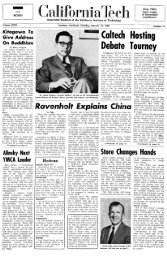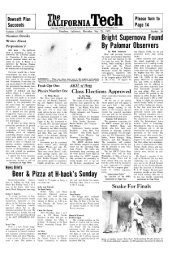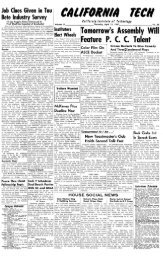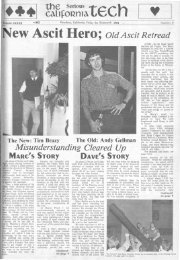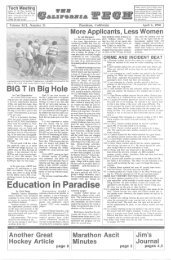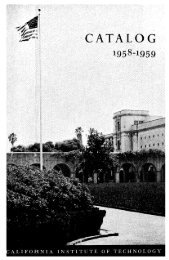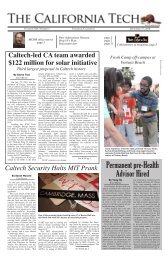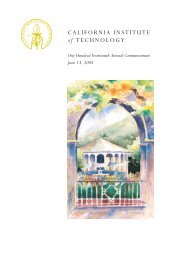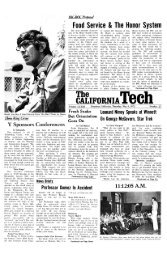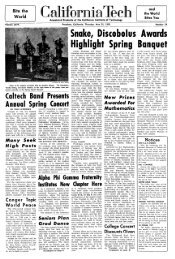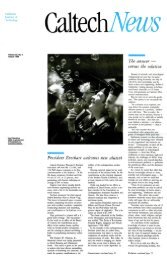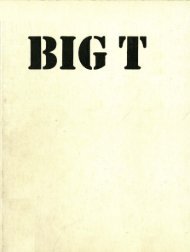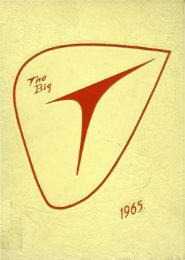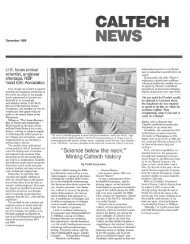PDF (1941) - CaltechCampusPubs
PDF (1941) - CaltechCampusPubs
PDF (1941) - CaltechCampusPubs
You also want an ePaper? Increase the reach of your titles
YUMPU automatically turns print PDFs into web optimized ePapers that Google loves.
126<br />
CALIFORNIA INSTITUTE OF TECHNOLOGY<br />
nearly all the available time and money, leaving the humanities to<br />
take what is left, which often turns out to be very little.<br />
The California Institute has been a pioneer in recognizing the<br />
desirability of providing for a generous amount of instruction in the<br />
humanities. The faculty, in thorough sympathy with this aim, has<br />
cooperated by eliminating some of the more specialized technical<br />
subjects commonly included in undergraduate courses. As a result,<br />
it has been found possible to require every student to take, in each of<br />
his four undergraduate years, one or more courses of a humanistic<br />
character. These courses in the Division of the Humanities cover the<br />
field of English and foreign literatures, European and American history,<br />
philosophy and social ethics, economics (including industrial<br />
relations) and government. All of them are so planned and articulated<br />
that the student obtains a solid grounding, and not merely the superficial<br />
acquaintance which is too often the outcome of a free elective<br />
system. The standards of intellectual performance in these studies are<br />
maintained on the same plane as in the professional subjects.<br />
One of the largest and most attractive buildings on the Institute<br />
campus is devoted to the work in literature, languages, philosophy,<br />
economics, history and government. This Hall of the Humanities,<br />
erected in 1928, was given by Mr. and Mrs. Joseph B. Dabney, of<br />
Los Angeles. It contains lecture rooms, a room for the exhibition<br />
of pictures and other works of art, a library-.-reading room, a large<br />
senior room, conference rooms, and offices, together with a commodious<br />
lounge which opens upon a walled garden of olive trees. In<br />
connection with the acceptance of this gift, a special endowment<br />
fund of $400,000 was raised for the support of instruction in the<br />
humanistic fields, this amount being subscribed by several friends of<br />
the Institute. In 1937 an additional endowment of $750,000 was<br />
received for the same purpose from a donor who desires to remain<br />
anonymous.<br />
In 1939 the Industrial Relations Section was established for a<br />
five-year experimental period. Financial support is provided by a<br />
generous grant from the Earhart Foundation of Detroit and by con-



